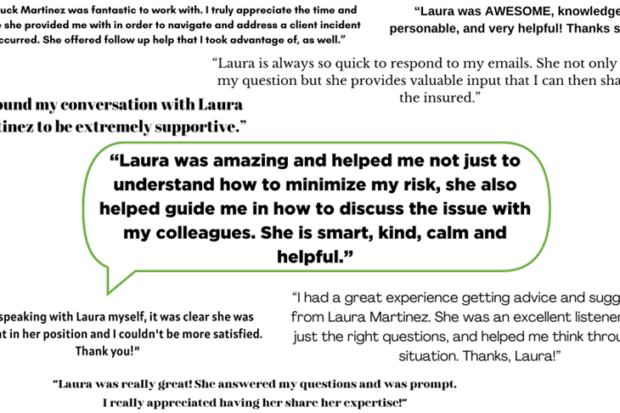It’s no secret that healthcare workers are under stressful conditions as the pandemic continues to create challenges in worker safety, resource supply, and working conditions. Workers are voicing their perspectives on social media about their COVID-19 experiences, the lack of PPE, being understaffed, and their working conditions, and while many of these frontline workers have helped to bring attention to the public crisis at hand, resulting in lives saved, it’s also important for healthcare workers to be mindful of the rights of their patients and the risk of lawsuits.
With larger platforms and voices, medical professionals are also finding themselves with more responsibility than ever to be vigilant about what they are posting while taking measures to insure patient information safety. As healthcare professionals post and practice their freedom of speech, they must remember not to violate the Health Insurance Portability and Accountability Act (HIPAA) by exposing a patient’s protected health information (PHI). They also need to be aware that plaintiff attorneys may find ways to use such posts against them or their organization in lawsuits.
The accessibility of social media platforms are great for staying connected to friends and peers, but they can also lead to the dissemination of misinformation or poor quality of information. They can lead to damages to a person’s professional reputation and an organization’s reputation, as well as legal issues, licensing issues, and HIPAA violations.
Even before the pandemic, social media incidents accounted for more than 56 percent of 4.5 billion compromised data records in the first half of 2018, according to the Breach Level Index. This included HIPAA violations. To mitigate these risks, a company or organization should have professional guidelines for social media as a reminder for its employees to stay in line with HIPAA privacy rules and PHI.
In the social media guidelines and policies, the employer should address these following best practices:
- Describe expectations regarding employee behavior outside of employment
- Reiterate company policy on discrimination, harassment, wrongful termination, leaking of confidential or proprietary information, damage to the organization’s reputation, productivity, and other issues
- Define employees’ responsibilities regarding inappropriate use of social media
- Define repercussions for inappropriate use of social media
- Reiterate HIPAA, federal and state guidelines on patients’ privacy
As a rule of thumb, before you post, think about the repercussions — will you violate HIPAA, will this make you look unprofessional, will this help improve care or awareness, or will this do harm to your organization’s reputation? Sometimes there is a lot of grey area, but OmniSure is here to help you manage risk, prevent lawsuits, and improve outcomes.
Consider the tips in this video about how to protect yourself and your patients’ confidential information while using social media.



